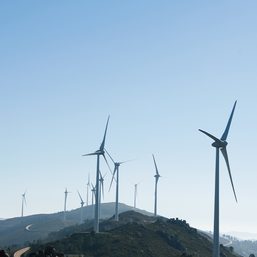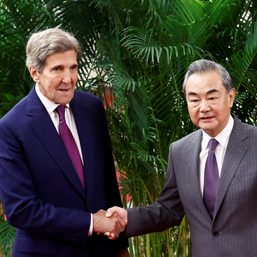SUMMARY
This is AI generated summarization, which may have errors. For context, always refer to the full article.
![[OPINION] Clear timelines needed for phaseout of fossil fuels](https://www.rappler.com/tachyon/2024/06/tl-fossil-fuel-phaseout.png)
This June 3-7, clean energy experts, practitioners, policymakers, implementers and financiers will gather in Manila for the annual Asia Clean Energy Forum (ACEF). Organized by the Asian Development Bank (ADB), ACEF is regarded as a premiere clean energy event for discussing how to accelerate progress to build a clean energy future for Asia and the Pacific region.
The theme of this year’s ACEF is “Accelerating the Clean Energy Transition and Ensuring Energy Security and Affordability – Time for Urgent Action Now.” This ACEF aspires to improve countries’ governance by addressing the barriers to clean energy development and increasing the financing, development, and investment in clean energy solutions.
The term “accelerating” is thrown about each year by ACEF in the context of building a clean energy future in the region. But this should not be about some distant future. We are already seeing and experiencing the devastating effects of climate change, such as extreme climate events and disasters. To avoid a climate catastrophe, countries agreed under the Paris Agreement to stay below 1.5C level of warming. This requires a reduction of global emissions by 45% by 2030 and reaching zero emissions by 2050. This means a rapid, just and equitable phasing out of fossil fuels and replacing them with clean, renewable energy systems, particularly solar and wind.
According to the Intergovernmental Panel on Climate Change (IPCC), without strong, rapid, and sustained reductions in greenhouse gas emissions, climate change risks and adverse impacts will escalate with increasing global warming. The latest IPCC report has found that emissions have increased global average temperatures by at least 1.1 degrees celsius. Unless countries drastically transform their economies and immediately transition away from fossil fuels, the world is likely to surpass the 1.5C climate threshold by the early 2030s.
It is not acceptable to play fast and loose with the climate goal of transitioning to clean energy. The task at hand is not merely to accelerate the transition but to rapidly transition with clear targets and timetables and within a deadline consistent with keeping temperature rise below 1.5C. The push for a clean energy transition must be backed by concrete timelines to phase out fossil fuels and phase in renewables.
Phase out coal in Asia by 2035
The phaseout of coal, the single biggest source of global temperature increase, is crucial to the Paris Agreement’s goal to reduce emissions. Paris requires coal to be phased out by 2030 in the OECD countries and by 2040 in the rest of the world. We strongly call on ACEF participants to enable Asian countries to achieve coal phaseout by 2035 and a rapid, just and equitable transition to 100% renewable energy sources by 2050.
A rapid decline in coal use and production in Asia and total coal phase out by 2035 needs to happen to enable ambitious climate mitigation actions and climate-resilient development. The focus of the coal market has been shifting to Asia. Since the 2000s, coal consumption has grown strongly in China, India, and Southeast Asia.
The latest report of the International Energy Agency (IEA) noted steep declines in coal demand in almost all advanced economies, but the demand growth in emerging and developing economies more than offset the decreases globally. Strong demand in China and India, as well as in Indonesia, Vietnam and the Philippines together represent more than 70% of global coal demand. China and India have also increased their coal production output since 2021 to cope with high electricity demand.
Meanwhile, the latest Global Energy Monitor report found that global total coal power capacity grew by 2% in 2023. The increase came from the 47.4GW of coal power capacity online in China in 2023, accounting for two-thirds of the global rise in operating coal power capacity. Notable increases in operating coal capacity were also recorded in Indonesia, India, Vietnam, Japan, Bangladesh, Pakistan and South Korea.
Delivering on climate finance
Achieving Asia’s just transition to clean energy requires significant financing to rapidly phase out coal and enable the rapid integration of more renewable energy capacity, particularly wind and solar, into the energy mix in the region. We call on international and Asian public financial institutions to make an immediate, wholesale shift from fossil fuel financing to renewable energy financing. It is deplorable that public financial institutions, as well as private banks, continue to finance and underwrite fossil fuel projects. This is despite warnings that there is no more room for new oil, gas, and coal within this decade if we want to keep global warming below 1.5C. Governments touting the urgency of a clean energy transition can make this happen quickly if they will shift all energy subsidies and financing to renewables now.
We also call on governments of developed countries to fully deliver on their climate finance obligations, part of which is funding rapid and just energy transitions in developing countries in Asia and the rest of the Global South. We cannot accept more evasion of their responsibilities and shifting the burden on the Global South.
Wind and solar
In Asia, millions of people still lack access to electricity, while many more are making do with unreliable but costly electricity or dirty fuel that leads to premature deaths. Renewable energy is cheaper than coal and other fossil fuels, particularly gas, which the fossil fuel industry and its enablers are touting as a necessary transition fuel to replace coal. Renewables can provide accessible and affordable power for all.
Renewables, particularly solar and wind, are growing fast.
The latest data shows that wind and solar are growing faster than any other sources of electricity in history. The rise of wind and solar has been stemming the growth of fossil fuel power, which would have been 22% higher in 2023 without them. Unfortunately, the growth of renewables is not fast enough. An agreement was reached among governments at COP28 to triple renewables by 2030. This should be the minimum target. We need to build and deploy renewable energy urgently, at the scale and speed required to fully supplant fossil fuels in the energy mix, meet the increase in energy demand in the coming year, and have 100% renewable energy by even before 2050. There is vast untapped potential in Asian countries, more than enough for this to happen.
We call on ACEF delegates to push for the implementation of policies for rapid, equitable, and just transition to one hundred 100% renewable sources of power by 2050 and do away with false solutions and technologies. Fossil fuel corporations and other ACEF participants are still putting false solutions on the table, such as hydrogen, carbon capture utilization and storage, ammonia, and promoting gas as a transition fuel. These are dirty sources of energy that only serve to entrench fossil fuels and continue to profit from them, ultimately delaying the clean energy transition. – Rappler.com
Lidy Nacpil is Coordinator of Asian Peoples’ Movement on Debt and Development.
Add a comment
How does this make you feel?






![[EDITORIAL] Anyare, Pilipinas? Anyare, COP?](https://www.rappler.com/tachyon/2023/11/animated-marcos-duterte-cop28-carousel.jpg?resize=257%2C257&crop_strategy=attention)

![[OPINION] Fossil fuel debts are illegitimate and must be canceled](https://www.rappler.com/tachyon/2024/04/IMHO-fossil-fuel-debt-cancelled-April-16-2024.jpg?resize=257%2C257&crop_strategy=attention)

There are no comments yet. Add your comment to start the conversation.